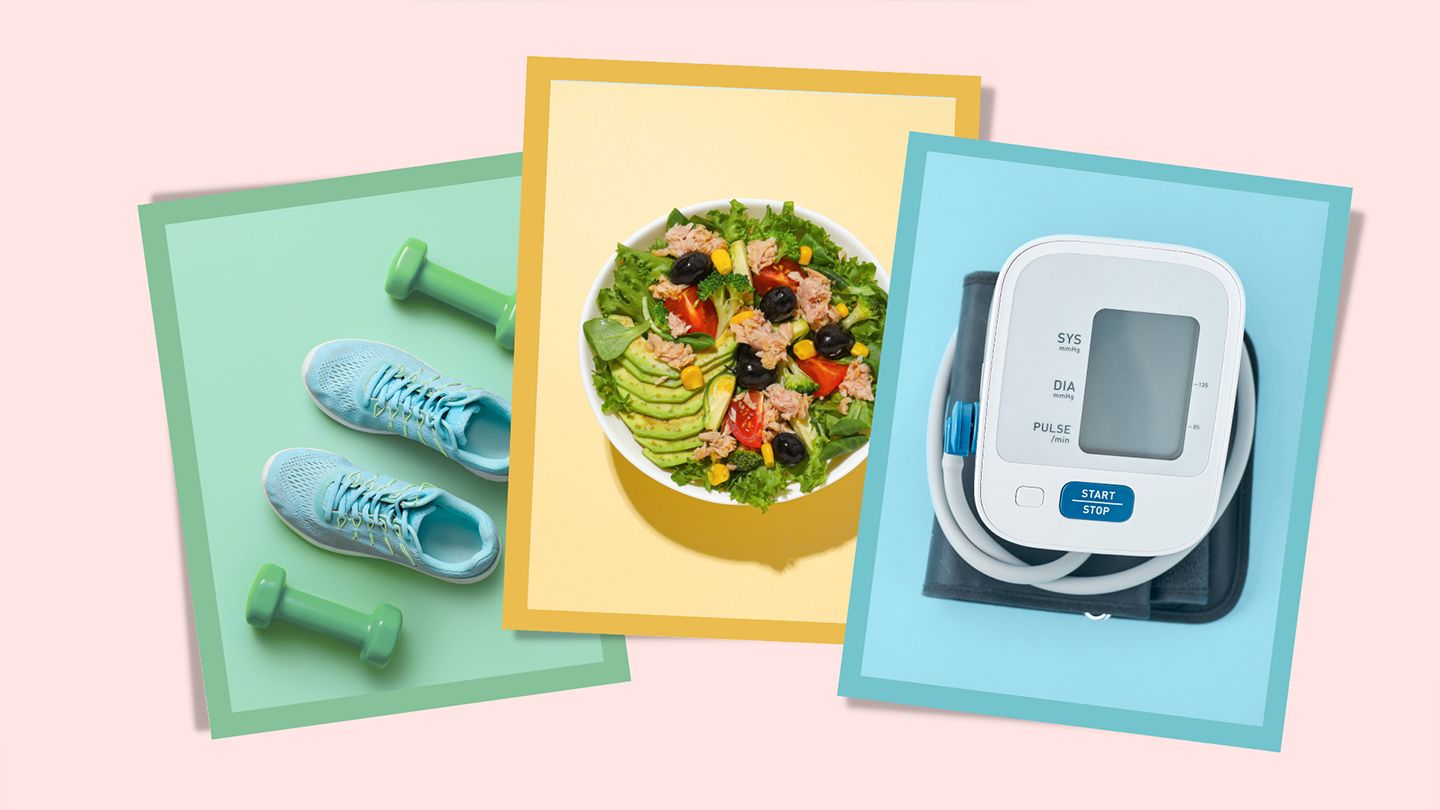- Vegetables
- Fruit
- Whole grains
- Fat-free or low-fat dairy products
- Fish
- Poultry
- Beans
- Nuts
- Vegetable oils
- Limited sodium (between 1,500 and 2,300 milligrams a day)
Although there is limited research on the direct effect of dietary choices on aneurysm risk, some studies have pointed to fruit, vegetables, and nuts as helping reduce risk, while eating red meat may increase that risk.
2. Lower Your Blood Pressure
Nearly half of all U.S. adults have high blood pressure, which is a risk factor for an aneurysm.
You can monitor your blood pressure at home and make lifestyle changes to manage or lower it. These include:
- Eating a healthy, low-sodium diet
- Exercising regularly
- Quitting smoking
- Managing stress
- Maintaining a healthy weight
- Limiting alcohol consumption
- Getting enough sleep each night
3. Stop Smoking
If you smoke cigarettes, quitting is one of the most important things you can do to control your risk of an aneurysm.
A landmark study published in 1999 showed that men ages 50 and older who smoked were 9 times more likely to have an aneurysm than those who did not. More recently, research shows that women ages 30 to 60 who smoke have 6 times the risk of having an aneurysm than those who do not.
To help you kick the habit, consider using over-the-counter stop-smoking products, such as nicotine gum, patches, and lozenges, or ask your doctor to recommend a prescription medication and smoking cessation program.
Secondhand smoke also can damage your blood vessels. Avoid places where secondhand smoke is allowed and ask family and friends not to smoke in your home or car.
4. Keep Your Cholesterol in Check
Cholesterol is a waxy substance that your body needs to build cells. But when your cholesterol level is greater than 240 milligrams per deciliter (mg/dL), it is considered high and can lead to complications. At least 10 percent of people in the United States ages 20 or older have high cholesterol.
Cholesterol levels between 200 and 239 mg/dL are considered borderline high. Depending on your other risk factors, your doctor may recommend that your cholesterol be treated if it falls in this range, too.
If your doctor has prescribed cholesterol-lowering medication, take it as prescribed while making lifestyle changes. Research has shown that lipid-lowering medication known as statins may shrink aneurysms, slow their growth, and prevent rupturing.
Read the full article here




